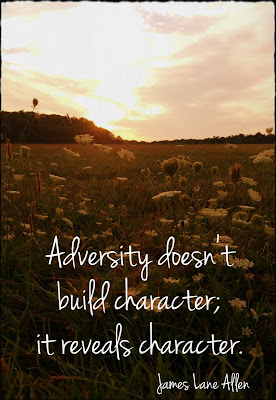"Friendly Reminder"
The other day, I went over to talk to a group of high school students - future teachers - about emotional trauma, and trauma informed teaching strategies. Towards the middle of the discussion, as we were moving in the direction of secondary trauma in caregivers, the kids were able to identify that they are, indeed, experiencing trauma, right now, every day.
You certainly are! What trauma are you experiencing?
"We're living during a pandemic."
Yes. We. Are.
According to the American Psychiatric Association, trauma is "an emotional response to a terrible event." Additionally, a "person may experience trauma as a response to any event that they find physically or emotionally threatening or harmful."
Important to note: individuals respond differently to different life events. It seems like it should not need to be said, but it needs to be said: Something that affects me might not affect you in the same way.
So, with our current situation, it's reasonable to surmise that some of us will just naturally cope better than others. We're hearing a lot about the isolation and lack of social outlets and activity being hard for so many. We're hearing that more and more people are experiencing episodes of depression and anxiety as a result of this pandemic, and all of the changes to our everyday lives, particularly, our personal contact with other human beings.
One thing that I have learned in my emotional travels, is that adversity not only reveals character, but it can also trigger anxiety! Anxiety is about wanting to have control over your life. What we tend to learn during hard times is that we have no control, and often, that sends us in to a tailspin. A sense of heightened anxiety is normal during hard times, and often is a result that lingers. It's also known as a post-traumatic response.- Mental confusion or difficulty concentrating
- Anger, irritability, or mood swings
- Withdrawing from others
- Feeling sad, or without hope
- Feeling disconnected to the outside world
- Feeling apathy
- Sleeplessness, vivid dreams, or nightmares
- Unusual or extreme fatigue
- Being easily startled
- Physical aches, pains, and/or muscle tension
Find comfort where you may. Take some alone time, or get together (safely) with a friend or family member... reach out for help... practice your self care, whatever it might be. Pay attention to how your body and mind are coping with the stress.









Comments
Post a Comment